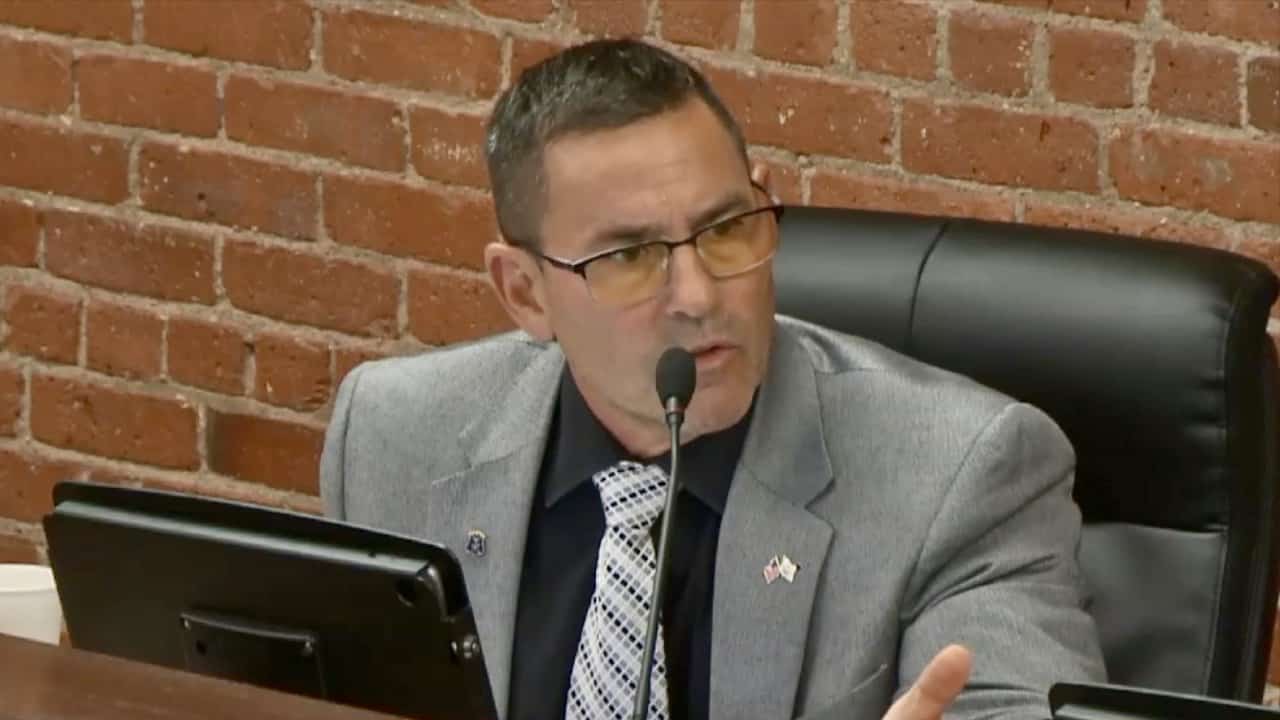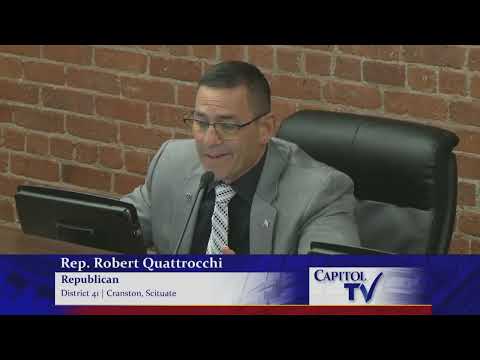Yes Rep Quattrocchi, the RI General Assembly can pass laws on the funding of abortion
“We are of the opinion that the enactment of the RPA did not amount to a constitutional amendment requiring a referendum,” writes the Rhode Island Supreme Court.
May 20, 2022, 3:36 pm
By Steve Ahlquist
“Regardless of where we stand on this contentious issue, we did take an oath to our constitution as a condition to do this job,” said Representative Robert Quattrocchi (Republican, District 41, Scituate), “Are you familiar with where our state constitution stands on this?”
Representative Quattrocchi was quizzing Representative Liana Cassar (Democrat, District 66, Barrington, East Providence), who had just introduced H7442 to the House Finance Committee, a bill that would “remove the bans on abortion coverage that currently exist in Rhode Island’s Medicaid and state health insurance plans.”
“Please go ahead and tell me what you’re thinking about,” replied Representative Cassar.
“Okay. So article 1, section 2, the last sentence. It states very clearly ‘[n]othing in this section shall be construed to grant or secure any right relating to abortion or the funding thereof,'” said Representative Quattrocchi. “So, it seems pretty black and white. Wouldn’t what your talking about have to be a constitutional amendment?”
Representative Cassar politely disagreed, but Representative Quattrocchi, alongside Representative George Nardone (Republican, District 28, Coventry), wasn’t satisfied. They posed the question later in the hearing to both Secretary of State Nellie Gorbea and General Treasurer Seth Magaziner, who both testified in support of H7442.
Taking the position that the questioning from Representatives Quattrocchi and Nardone was sincere and not an attempt to muddy the waters on the issue by framing it as a constitutional prohibition, is there anyway to determine if the Rhode Island Constitution does in fact prohibit the General Assembly from passing legislation of the right to and the funding of abortion?
The answer is yes. There is a very recent, legally binding decision from the Rhode Island Supreme Court, that directly analyzes the question that has so confused Representatives Quattrocchi and Nardone.
Shortly after the passage of the Reproductive Privacy Act (RPA) in 2019, which essentially codified the legal protections of Roe v Wade into Rhode Island State Law, a group of plaintiffs challenged the Act on the grounds that it violated the Rhode Island Constitution, specifically article 1, section 2, pointed out by Representatives Quattrocchi and Nardone.
The case, originally against Gina Raimondo in her capacity as Governor of Rhode Island, was amended to be titled Michael Benson et al. v. Daniel McKee in his official capacity as Governor for the State of Rhode Island, et al.
The Rhode Island Supreme Court issued the ruling on May 4 of this year, one day after the leaked United States Supreme Court document telegraphing the Court’s intention to overturn Roe v. Wade, so you can be forgiven for missing it.
The Rhode Island Supreme Court decided Benson v McKee on the basis of standing, but included In their decision an analysis of the constitutional claims in the lawsuit. “Because we are mindful of the critical public importance that attaches to a direct challenge to the General Assembly’s constitutional authority to enact legislation, we briefly turn to that specific issue,” wrote the Court.
The Court decided, after carefully weighing the wording in article 1, section 2, that “We are of the opinion that the enactment of the RPA did not amount to a constitutional amendment requiring a referendum.” The Rhode Island Supreme Court decision applies not only to the right of abortion, but also to its funding, because both the right to and the funding of abortion is mentioned in article 1, section 2.
Below is some of the text from the decision, cleaned up a little:
“In 1986 the Rhode Island Constitutional Convention… revised article 1, section 2 of the state’s constitution to include the due process and equal protection language of the Fourteenth Amendment to the United States Constitution…
“The drafters’ rationale for adding a parallel yet independent equal-protection clause was presumably to protect the citizens of this state should the federal judiciary adopt a more narrow interpretation of the Fourteenth Amendment…
“Significantly, however, the drafters inserted a sentence declaring that ‘[n]othing in this section shall be construed to grant or secure any right relating to abortion or the funding thereof’…
“This Court has said that, in construing constitutional amendments, our chief function is to give effect to the intent of the framers. When the language in a provision of the constitution is ‘free from ambiguity, the[] [words] are to be given their plain, ordinary, and usually accepted meaning.’ Importantly, ‘state constitutional and statutory law is subordinate to the constitutional powers of the federal government, and ‘the Constitution and the laws passed pursuant to it are the supreme laws of the land, binding alike upon states, courts, and the people’…
“A plain reading of article 1, section 2 reveals that the language in the last sentence is clear and unambiguous…
“First, it is confined to that section of the constitution; it reads, “[n]othing in this section shall be construed to grant or secure any right relating to abortion or the funding thereof.” (emphasis added)…
“Second, this sentence employs the term ‘construed.’ which connotes a judicial function, defined by Black’s Law Dictionary as ‘[t]o analyze and explain the meaning of (a sentence or passage…
“Construing provisions in the state’s constitution is the function of this Court, and we have not been called upon to do so in the context of this case. But in no way has the General Assembly been prohibited from enacting the legislation at issue in the case at bar. The General Assembly enacts law; it does not interpret or construe the constitution – that is the function of this Court…
“We pause to note that at the close of the 1986 Constitutional Convention, the public voted to approve and ratify or reject fourteen proposed constitutional amendments by way of referendum…
“Ballot Question No. 8, the proposed amendment to article 1, section 2, was approved. Notably, Ballot Question No. 14,16 an amendment effectively banning abortion in Rhode Island, was also on the ballot in 1986. The question failed. The submission of these two distinct questions to the voters convinces us that article 1, section 2 prohibits the drawing of any inferences concerning the right to abortion or its funding arising from the due process and equal protection provisions of the state constitution…
“We are of the opinion that the enactment of the RPA did not amount to a constitutional amendment requiring a referendum…“







